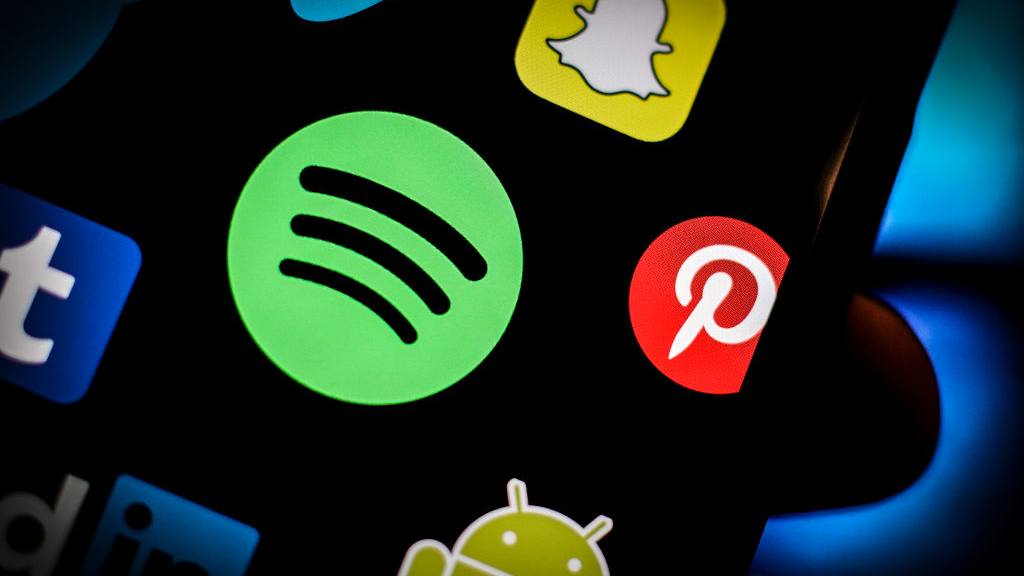Spotify's new rules mean that over half of all songs on the platform won't be eligible for royalty payouts, according to reports
Tracks racking up less than 1000 streams annually won't earn a single cent in royalties under the new model

Want all the hottest music and gear news, reviews, deals, features and more, direct to your inbox? Sign up here.
You are now subscribed
Your newsletter sign-up was successful
Spotify is set to announce the most significant changes to its royalty model since the streaming service launched in 2008, Music Business Worldwide reports. Taking effect in Q1 2024, the most controversial of these changes will see Spotify demonetizing tracks that receive less than 1000 plays annually.
The streaming giant is planning to apply a minimum annual threshold to all songs on its platform, meaning that every track will have to generate 1000 streams before any money is paid out to the artists and rightsholders behind it. Until this point, every song played on Spotify for longer than 30 seconds generated a royalty payment: this will no longer be the case.
MBW reports that sources close to Spotify have said the company's objective with this move is to reallocate tens of millions of dollars from the 0.5% of artists on its platform that receive under 1000 streams annually to the other 99.5% of the royalty pool. Spotify estimates that due to this decision, $40 million will be redirected to those above the threshold in 2024 alone.
According to Spotify's figures, 37.5 million tracks have topped 1000 streams (1000 as an all-time total, not annually) in the history of the platform, out of the entire catalogue of over 100 million tracks. This means that close to two-thirds of all the music on Spotify has yet to reach the 1000-stream threshold and won't be generating any royalties under the platform's new rules.
In addition, Spotify is introducing two more new policies to its platform next year. The first aims to tackle fraud, and will see Spotify charging a penalty to distributors and labels that enable fraudulent streams. Estimates have placed the share of streams generated by fraudsters on Spotify at anywhere from 3% to 10%.
The second policy concerns so-called "functional" content, or supposedly "non-musical" audio such as white noise and environmental sounds. Each functional track will now have to be played for an increased length of time before it can generate a royalty for its creator.
Previously, those uploading functional music to the platform often gamed the system by splitting their sounds into hundreds of 31-second tracks - just one second above the play-time required to earn a royalty. By elongating the length of time required for a functional track to generate a royalty payment, Spotify will reduce the share of its royalty pool paid out to the makers of functional music, redirecting this money to conventional music artists.
Want all the hottest music and gear news, reviews, deals, features and more, direct to your inbox? Sign up here.
Both this decision and the others outlined above echo similar changes to streaming service Deezer's royalty model revealed earlier this year. Deezer chose to go further, however, completely demonetizing all the functional music on its platform.
Spotify's decision to demonetize unpopular tracks seems at first to be a further blow to independent artists already earning very little from streaming, a system many have labelled as "broken". However, some have pointed out that Spotify's 1000-stream threshold will affect only those earning less than $5 a year from streaming payouts, sums so small that artists wouldn't typically be able to withdraw them from their distributors' accounts.
“This targets those royalty payouts whose value is being destroyed by being turned into fractional payments – pennies or nickels,” an unnamed source said to MBW.
“Often, these micro-payments aren’t even reaching human beings; aggregators frequently require a minimum level before they allow indie artists to withdraw the money. We’re talking about tracks [whose royalties] aren’t hitting those minimum levels, leaving their Spotify royalty payouts sitting idle in bank accounts.”

I'm MusicRadar's Tech Editor, working across everything from product news and gear-focused features to artist interviews and tech tutorials. I love electronic music and I'm perpetually fascinated by the tools we use to make it.
